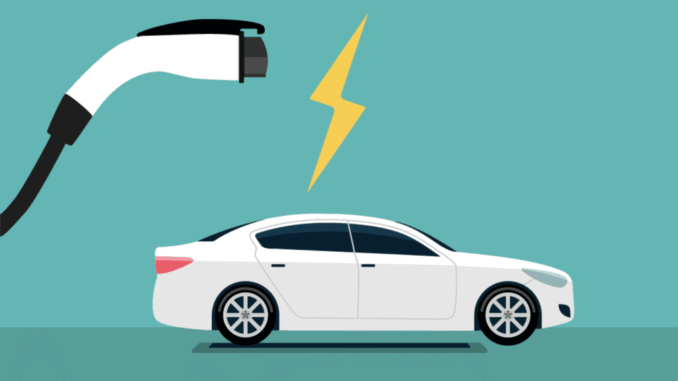
Electric vs. Gas Cars: Which Is Right for You?
As the automotive industry continues to evolve, one of the most common questions for prospective car buyers in 2025 is: Should I choose an electric car or stick with a gas-powered vehicle? Both options come with advantages and drawbacks, and the best choice depends on your lifestyle, driving habits, and budget.
In this article, we’ll break down the key differences between electric and gas cars, including cost, maintenance, performance, environmental impact, and convenience—helping you decide which one is right for you.
1. Initial Cost and Incentives
Electric Cars
Electric vehicles (EVs) often come with a higher upfront price, especially for models with longer range and advanced features. However, government incentives such as tax credits, rebates, and reduced registration fees can lower the effective cost significantly.
For example, many regions offer rebates of $2,000 to $7,500 for new EV purchases, which can help offset the initial investment.
Gas Cars
Gas-powered cars generally have a lower starting price, making them more accessible to first-time buyers or those on a tight budget. Because they’ve been around longer, there’s also a wider selection of used gas vehicles at affordable prices.
Verdict:
Gas cars win on upfront cost, but EVs can close the gap with incentives.
2. Fueling and Operating Costs
Electric Cars
Charging an EV is typically cheaper than filling a gas tank, especially if you charge at home. On average, charging an electric car costs about $0.04 to $0.06 per mile, while gas can cost double or more, depending on prices in your area.
Some EV owners even use solar panels to reduce costs further. Plus, many public places now offer free or discounted charging.
Gas Cars
Fuel prices are unpredictable and often more expensive over time. Gasoline engines are less efficient and require more frequent stops for refueling. If you have a long commute or drive frequently, gas costs can add up quickly.
Verdict:
EVs win when it comes to daily running costs.
3. Maintenance and Reliability
Electric Cars
EVs have fewer moving parts, which means fewer things that can go wrong. There’s no engine oil to change, no transmission fluid, and no exhaust system to maintain. Brake wear is also reduced thanks to regenerative braking systems.
Many EVs require minimal servicing, and their long-term reliability is improving with each new generation.
Gas Cars
Traditional cars need regular maintenance, including oil changes, timing belts, spark plugs, and emission system repairs. While maintenance schedules are predictable, they also come with higher costs over the vehicle’s lifetime.
Verdict:
Electric cars are generally more cost-effective and hassle-free to maintain.
4. Range and Refueling Convenience
Electric Cars
One of the biggest concerns for EV buyers is range anxiety—the fear of running out of power before reaching a charger. While newer models offer 250 to 400 miles of range, this still doesn’t match the quick refueling and flexibility of gas vehicles.
Charging times can range from 30 minutes (at a fast charger) to 8+ hours (on a home outlet), which requires planning, especially for long trips.
Gas Cars
Gas cars offer faster and more convenient refueling. Filling a tank takes just a few minutes, and gas stations are abundant even in remote areas.
Verdict:
Gas cars are still better for long-distance drivers or those with limited charging access.
5. Performance and Driving Experience
Electric Cars
EVs deliver instant torque, meaning they accelerate quickly and smoothly. They’re quiet, responsive, and feel more modern to drive. Brands like Tesla, Rivian, and Hyundai are pushing the boundaries of EV performance.
Electric drivetrains also offer a low center of gravity, which improves handling.
Gas Cars
While many gas vehicles perform well, they generally don’t match the quick acceleration and seamless driving experience of EVs. That said, performance sports cars and high-horsepower engines are still better represented in the gas category—for now.
Verdict:
EVs provide a more refined and responsive driving experience.
6. Environmental Impact
Electric Cars
Electric vehicles produce zero tailpipe emissions, which helps reduce air pollution and greenhouse gases. When charged with renewable energy, EVs have a significantly lower environmental footprint.
However, battery production does have an environmental cost, particularly due to mining for lithium, cobalt, and other materials.
Gas Cars
Gas-powered vehicles emit carbon dioxide and other pollutants, contributing to climate change and poor air quality. Even the most fuel-efficient gas cars cannot match the environmental benefits of EVs over their lifespan.
Verdict:
Electric cars are the greener choice overall, especially when powered by clean energy.
7. Availability and Model Variety
Electric Cars
While EV options have grown rapidly, the selection is still more limited than gas vehicles. However, more automakers are introducing electric models, including sedans, SUVs, trucks, and even sports cars.
Charging infrastructure continues to expand, but it’s not yet as widespread as gas stations, particularly in rural areas.
Gas Cars
There’s a much wider variety of gas-powered models, from budget compacts to heavy-duty trucks and luxury vehicles. Plus, it’s easier to find gas cars at any dealership, in both new and used markets.
Verdict:
Gas cars win for variety, but EV options are growing fast.
8. Resale Value and Depreciation
Electric Cars
EVs have traditionally depreciated faster than gas cars, but that trend is starting to change as demand increases and battery technology improves. Some models, especially Teslas, hold their value well.
Gas Cars
Used gas cars historically retain value better, especially for reliable brands. However, as more cities consider bans on fossil-fuel vehicles in the future, resale values could decrease.
Verdict:
Still a close call, but gas cars currently have a slight edge in resale—though this may shift soon.
Final Comparison Table
| Feature | Electric Cars | Gas Cars |
|---|---|---|
| Initial Cost | Higher (but offset by incentives) | Lower upfront cost |
| Fueling Cost | Low (especially at home) | Higher, fluctuates |
| Maintenance | Minimal | Frequent and costly |
| Driving Range | Moderate to High (but slower refueling) | High and fast refueling |
| Performance | Instant torque, smooth ride | Traditional, varied |
| Environmental Impact | Low emissions | High emissions |
| Variety of Models | Growing | Wide selection |
| Resale Value | Improving | Still reliable |
So, Which Is Right for You?
Choose an Electric Car If You:
- Drive mostly in cities or on regular routes
- Have access to home or workplace charging
- Want low maintenance and long-term savings
- Care about the environment
- Are looking for a modern, tech-focused vehicle
Choose a Gas Car If You:
- Drive long distances frequently
- Need quick refueling or travel to remote areas
- Want a wider range of models to choose from
- Prefer a lower initial cost or are buying used
- Aren’t ready to rely on public charging infrastructure
Conclusion
There’s no one-size-fits-all answer in the debate of electric vs. gas cars. Your choice depends on your daily driving needs, budget, and personal preferences. As electric vehicles become more accessible and infrastructure improves, they are increasingly practical for a wide range of drivers.
However, gas cars remain a strong choice for those prioritizing upfront cost, convenience, and variety.
Take time to evaluate your driving habits, costs, and what you value most in a vehicle. Whether you go electric or stick with gas, making an informed decision ensures you’ll drive away happy and confident.

